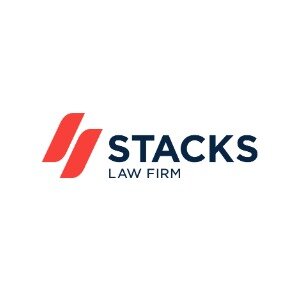Best Job Discrimination Lawyers in Hornsby
Share your needs with us, get contacted by law firms.
Free. Takes 2 min.
List of the best lawyers in Hornsby, Australia
About Job Discrimination Law in Hornsby, Australia
Job Discrimination Law in Hornsby, Australia, falls under the jurisdiction of Australian federal and state laws. These laws prevent employers from discriminating against employees based on various factors such as age, race, sex, disability, marital status, sexual orientation, and family responsibilities, among others. Under these laws, employment discrimination can occur in any phase of employment - from job advertisements and interviews to promotions and termination.
Why You May Need a Lawyer
There are numerous situations where you may need a lawyer for job discrimination issues. It could be to seek advice about potential discrimination, lodge a formal complaint, represent you in negotiations with your employer, or to take your case to a tribunal or to court. Lawyers can assist you in understanding and upholding your employment rights and can guide you about how to proceed if you feel you've been unjustly treated at your workplace.
Local Laws Overview
Local job discrimination laws in Hornsby, Australia are chiefly governed by the New South Wales Anti-Discrimination Act 1977 and the Fair Work Act 2009 at the federal level. These laws outline unfair treatment in the workplace and define what constitutes unlawful discrimination. They ensure workers' rights are protected and offer avenues for redress, should these rights be violated.
Frequently Asked Questions
1. What constitutes job discrimination?
Job discrimination occurs when a person is treated less favorably than another person in a similar situation because of their race, color, gender, sexual orientation, age, physical or mental disability, marital status, or family or carer's responsibilities.
2. Can I lodge a complaint about job discrimination?
Yes, you can lodge a complaint with the Australian Human Rights Commission or the Anti-Discrimination Board of New South Wales if you believe you have been discriminated against. You may also seek legal advice or representation alongside.
3. What are my rights if I'm facing job discrimination?
If you are facing job discrimination, you have the right to complain about the treatment to your employer and seek resolution. If that isn't sufficient, you can take the issue to the federal or state human rights bodies or to court.
4. What kind of damages can I be awarded if I win a job discrimination case?
In a successful job discrimination case, you may be awarded compensation for lost wages, emotional distress, punitive damages, and more. It depends on the particulars of your case and how the discrimination affected you.
5. How long does a job discrimination case usually last?
The duration of a job discrimination case can greatly vary as it depends on the complexity of the case, the willingness of the parties to settle, and the backlog of the court or tribunal.
Additional Resources
There are numerous additional resources available for people dealing with job discrimination in Australia. This includes governmental bodies like the Australian Human Rights Commission and the Anti-Discrimination Board of New South Wales. You can also find support and information from independent bodies like the Australian Council of Trade Unions and various community legal centres.
Next Steps
If you need legal assistance for job discrimination, you should first seek advice from a lawyer to understand your rights and explore your options. If necessary, you can lodge a formal complaint with your employer or the relevant human rights body. Always keep a record of incidents and maintain any available evidence of discrimination. Should your case escalate, these will be crucial for your representation.
Lawzana helps you find the best lawyers and law firms in Hornsby through a curated and pre-screened list of qualified legal professionals. Our platform offers rankings and detailed profiles of attorneys and law firms, allowing you to compare based on practice areas, including Job Discrimination, experience, and client feedback.
Each profile includes a description of the firm's areas of practice, client reviews, team members and partners, year of establishment, spoken languages, office locations, contact information, social media presence, and any published articles or resources. Most firms on our platform speak English and are experienced in both local and international legal matters.
Get a quote from top-rated law firms in Hornsby, Australia — quickly, securely, and without unnecessary hassle.
Disclaimer:
The information provided on this page is for general informational purposes only and does not constitute legal advice. While we strive to ensure the accuracy and relevance of the content, legal information may change over time, and interpretations of the law can vary. You should always consult with a qualified legal professional for advice specific to your situation.
We disclaim all liability for actions taken or not taken based on the content of this page. If you believe any information is incorrect or outdated, please contact us, and we will review and update it where appropriate.








